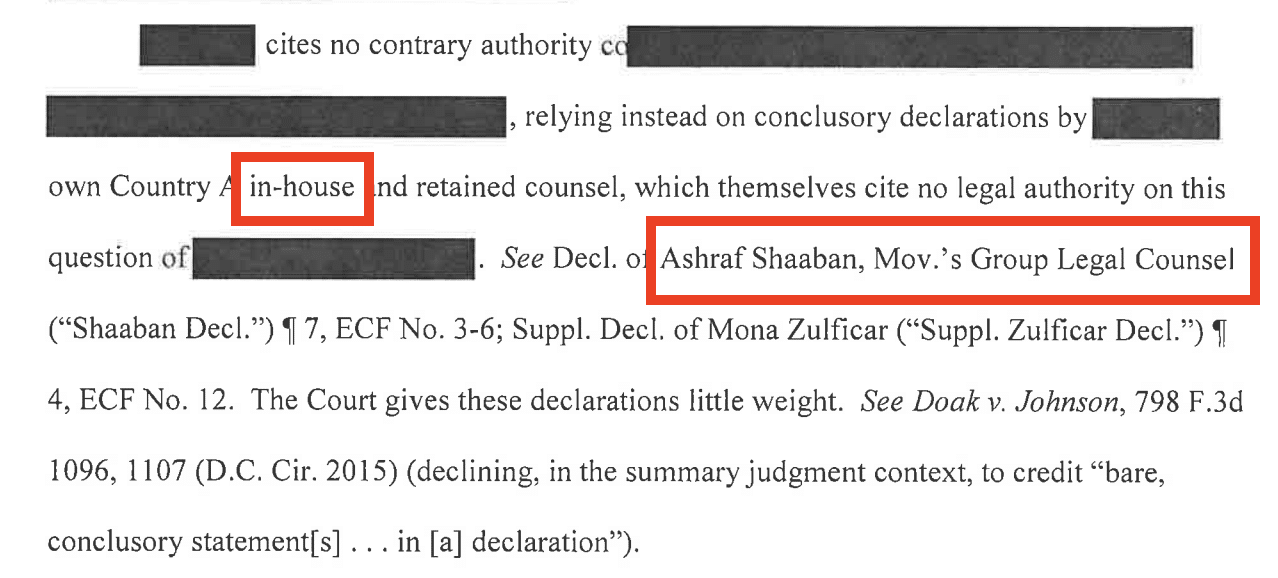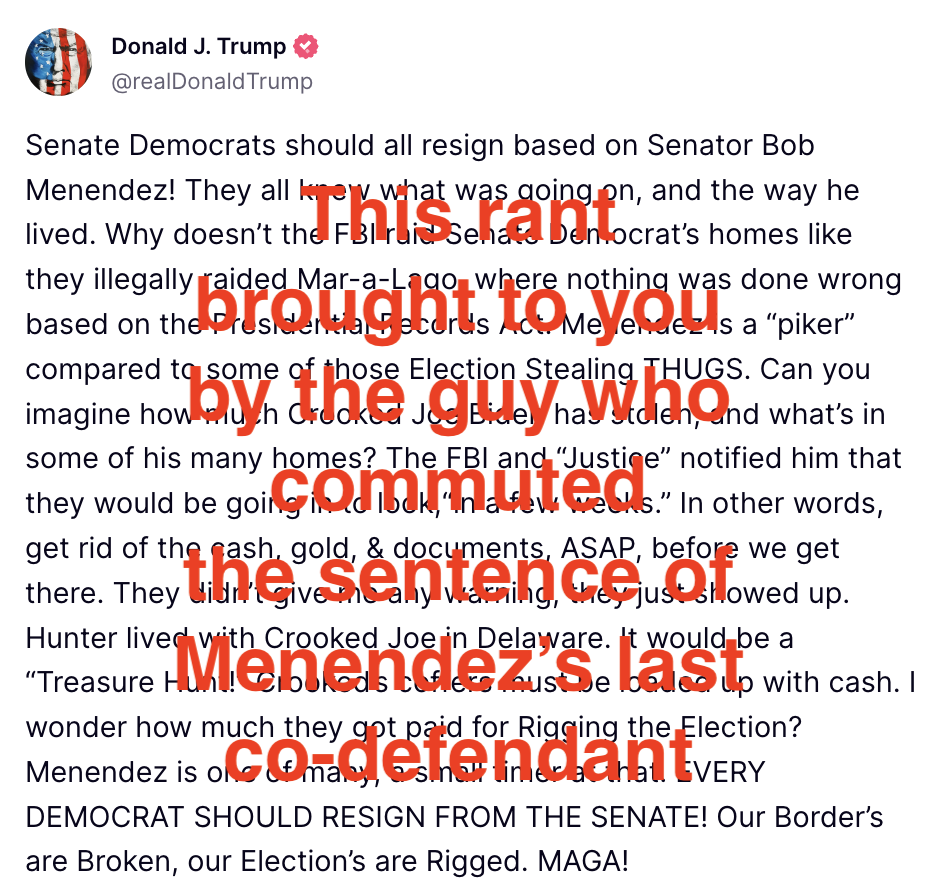That’s because the definition of “specific selection term” permits (corporate) persons to be used as a selector, so long as they aren’t communications companies. So Visa, Western Union, and Bank of America could all be used as the selector; Amazon could be for anything not cloud or communications-related. Even if the government obtained all the records from these companies — as reports say it does with Western Union, at least — that would not be considered “bulk” because the government defines “bulk” as collection without a selector. Here, the selector would be the company.
And as I just figured out yesterday, the bill requires absolutely no individualized reporting on traditional Section 215 orders that don’t obtain communications. Here’s what the bill requires DNI to report on traditional 215 collection.
(D) the total number of orders issued pursuant to applications made under section 501(b)(2)(B) and a good faith estimate of—
(i) the number of targets of such orders;
(ii) the number of individuals whose communications were collected pursuant to such orders; and
(iii) the number of individuals whose communications were collected pursuant to such orders who are reasonably believed to have been located in the United States at the time of collection;
The bill defines “individuals whose communications were collected” this way:
(3) INDIVIDUAL WHOSE COMMUNICATIONS WERE COLLECTED.—The term ‘individual whose communications were collected’ means any individual—
(A) who was a party to an electronic communication or a wire communication the contents or noncontents of which was collected; or
(B)(i) who was a subscriber or customer of an electronic communication service or remote computing service; and
(ii) whose records, as described in subparagraph (A), (B), (D), (E), or (F) of section 2703(c)(2) of title 18, United States Code, were collected.
Thus, the 215 reporting only requires the DNI to provide individualized reporting on communications related orders. It requires no individualized reporting at all on actual tangible things (in the tangible things provision!). A dragnet order collecting every American’s Visa bill would be reported as 1 order targeting the 4 or so terrorist groups specifically named in the primary order. It would not show that the order produced the records of 310 million Americans.
I’m guessing this is not a mistake, which is why I’m so certain there’s a financial dragnet the government is trying to hide.
Under the bill, of course, Visa and Western Union could decide they wanted to issue a privacy report. But I’m guessing if it would show 310 million to 310,000,500 of its customers’ privacy was being compromised, they would be unlikely to do that.
So the bill would permit the collection of all of Visa’s records (assuming the government could or has convinced the FISC to rubber stamp that, of course), and it would hide the extent of that collection because DNI is not required to report individualized collection numbers.
But it’s not just the language in the bill that amounts to ratification of such a dragnet.
As the government has argued over and over and over, every time Congress passes Section 215’s “relevant to” language unchanged, it serves as a ratification of the FISA Court’s crazy interpretation of it to mean “all.” That argument was pretty dodgy for reauthorizations that happened before Edward Snowden came along (though its dodginess did not prevent Clare Eagan, Mary McLaughlin, and William Pauley from buying it). But it is not dodgy now: Senators need to know that after they pass this bill, the government will argue to courts that it ratifies the legal interpretations publicly known about the program.
While the bill changes a great deal of language in Section 215, it still includes the “relevant to” language that now means “all.” So every Senator who votes for USAF will make it clear to judges that it is the intent of Congress for “relevant to” to mean “all.”
And it’s not just that! In voting for USAF, Senators would be ratifying all the other legal interpretations about dragnets that have been publicly released since Snowden’s leaks started.
That includes the horrible John Bates opinion from February 19, 2013 that authorized the government to use Section 215 to investigate Americans for their First Amendment protected activities so long as the larger investigation is targeted at people whose activities aren’t protected under the First Amendment. So Senators would be making it clear to judges their intent is to allow the government to conduct investigations into Americans for their speech or politics or religion in some cases (which cases those are is not entirely clear).
That also includes the John Bates opinion from November 23, 2010 that concluded that, “the Right to Financial Privacy Act, … does not preclude the issuance of an order requiring the production of financial records to the Federal Bureau of Investigation (FBI) pursuant to the FISA business records provision.” Given that Senators know (or should — and certainly have the ability to — know) about this before they support USAF, judges would be correct in concluding that it was the intent of Congress to permit the government to collect financial records under Section 215.
So Senators supporting this bill must realize that supporting the bill means they are supporting the following:
- The interpretation of “relevant to” to permit the government to collect all of a given kind of record in the name of a standing FBI terrorism investigation.
- The use of non-communication company corporate person names, like Visa or Western Union, as the selector “limiting” collection.
- The use of Section 215 to collect financial records.
- Not requiring the government to report how many Americans get sucked up in any financial (or any non-communications) dragnet.
That is, Senators supporting this bill are not only supporting a possible financial dragnet, but they are helping the government hide the existence of it.
I can’t tell you what the dragnet entails. Perhaps it’s “only” the Western Union tracking reported by both the NYT and WSJ. Perhaps James Cole’s two discussions of being able to collect credit card records under this provision means they are. Though when Leahy asked him if they could collect credit card records to track fertilizer purchases, Cole suggested they might not need everyone’s credit cards to do that.
Leahy: But if our phone records are relevant, why wouldn’t our credit card records? Wouldn’t you like to know if somebody’s buying, um, what is the fertilizer used in bombs?
Cole: I may not need to collect everybody’s credit card records in order to do that.
[snip]
If somebody’s buying things that could be used to make bombs of course we would like to know that but we may not need to do it in this fashion.
We don’t know what the financial dragnet is. But we know that it is permitted — and deliberately hidden — under this bill.
Below the rule I’ve put the names of the 18 Senators who have thus far co-sponsored this bill. If one happens to be your Senator, it might be a good time to urge them to reconsider that support.
Patrick Leahy (202) 224-4242
Mike Lee (202) 224-5444
Dick Durbin (202) 224-2152
Dean Heller (202) 224-6244
Al Franken (202) 224-5641
Ted Cruz (202) 224-5922
Richard Blumenthal (202) 224-2823
Tom Udall (202) 224-6621
Chris Coons (202) 224-5042
Martin Heinrich (202) 224-5521
Ed Markey (202) 224-2742
Mazie Hirono (202) 224-6361
Amy Klobuchar (202) 224-3244
Sheldon Whitehouse (202) 224-2921
Chuck Schumer (202) 224-6542
Bernie Sanders (202) 224-5141
Cory Booker (202) 224-3224
Bob Menendez (202) 224-4744
Sherrod Brown (202) 224-2315




